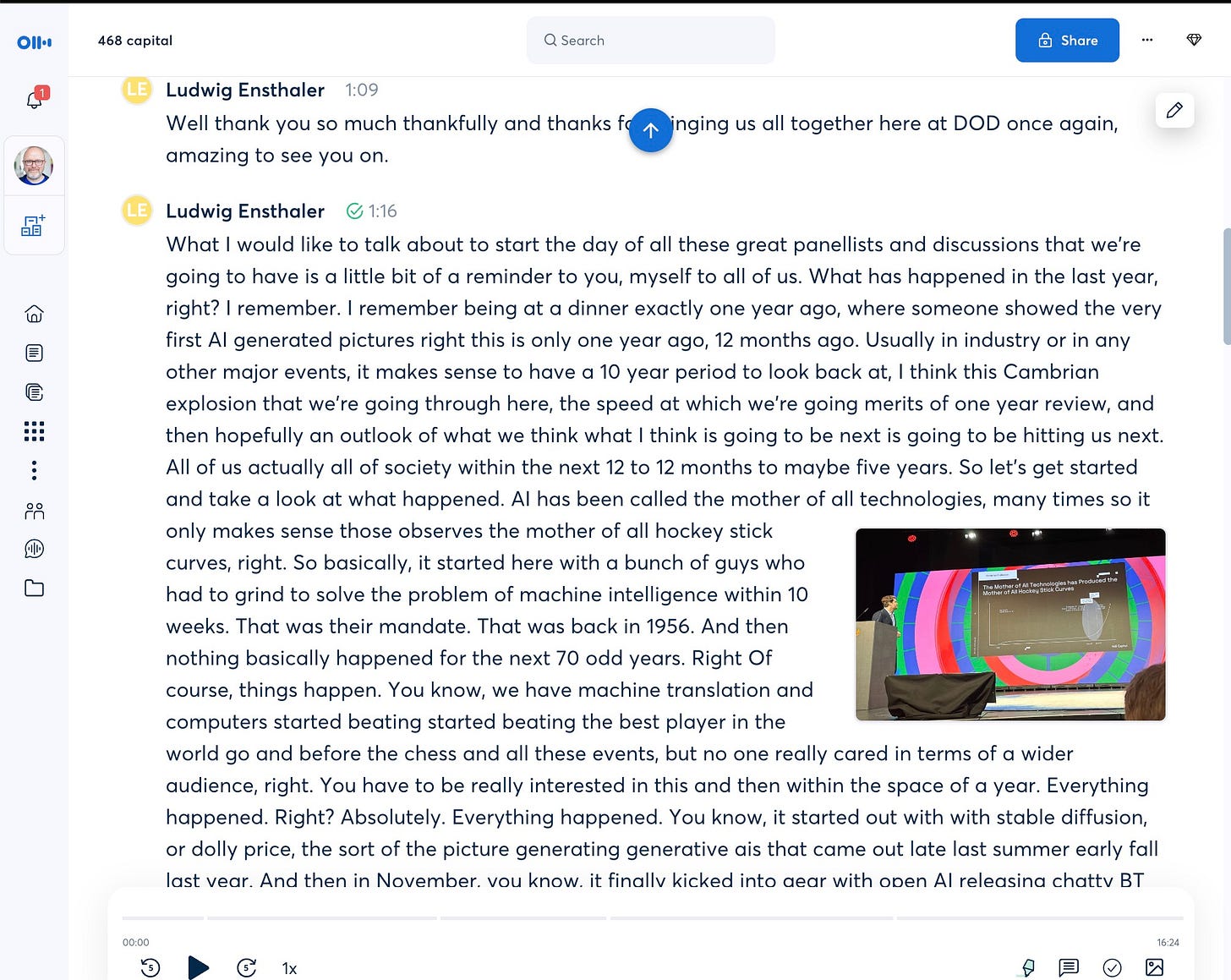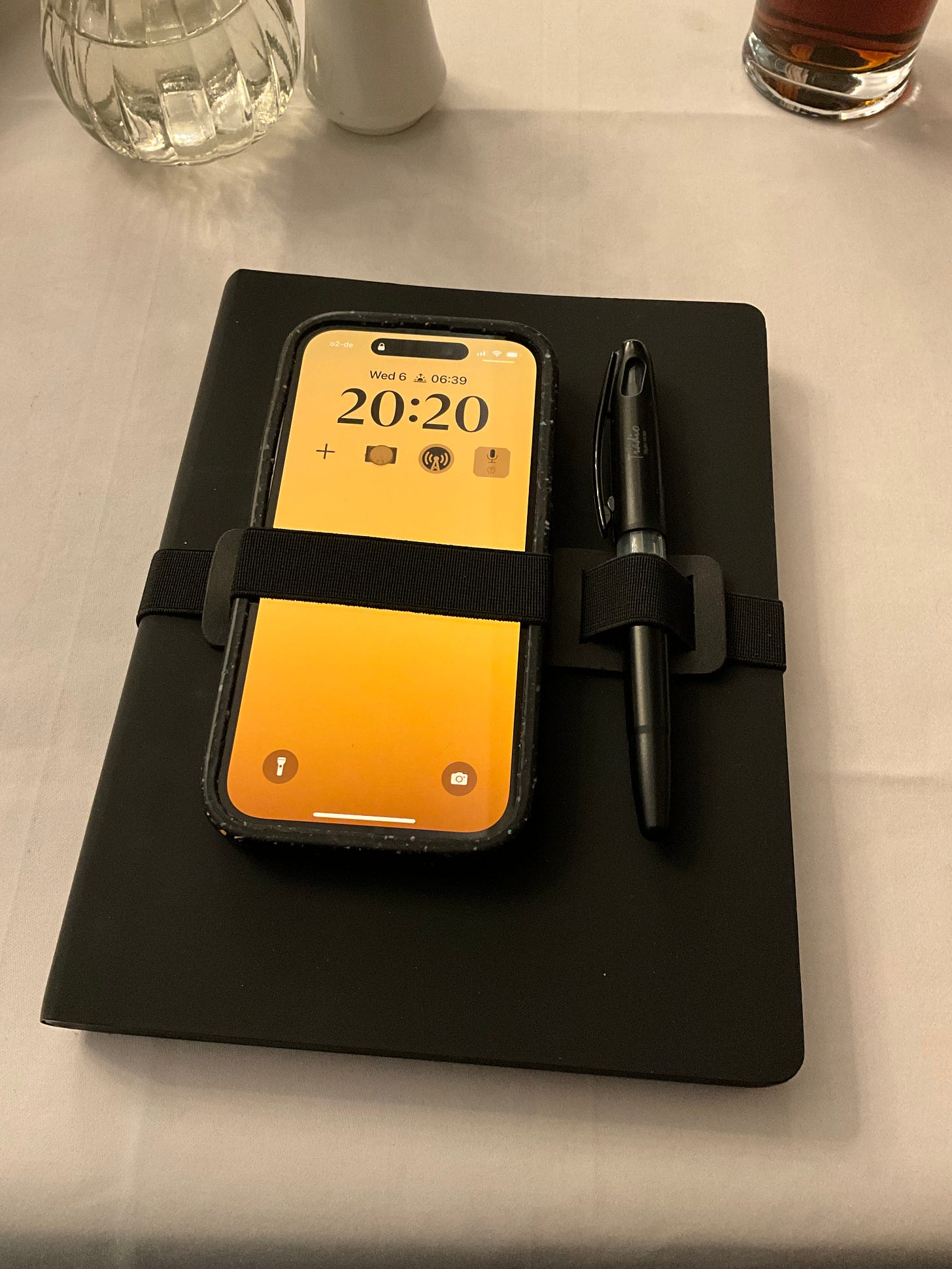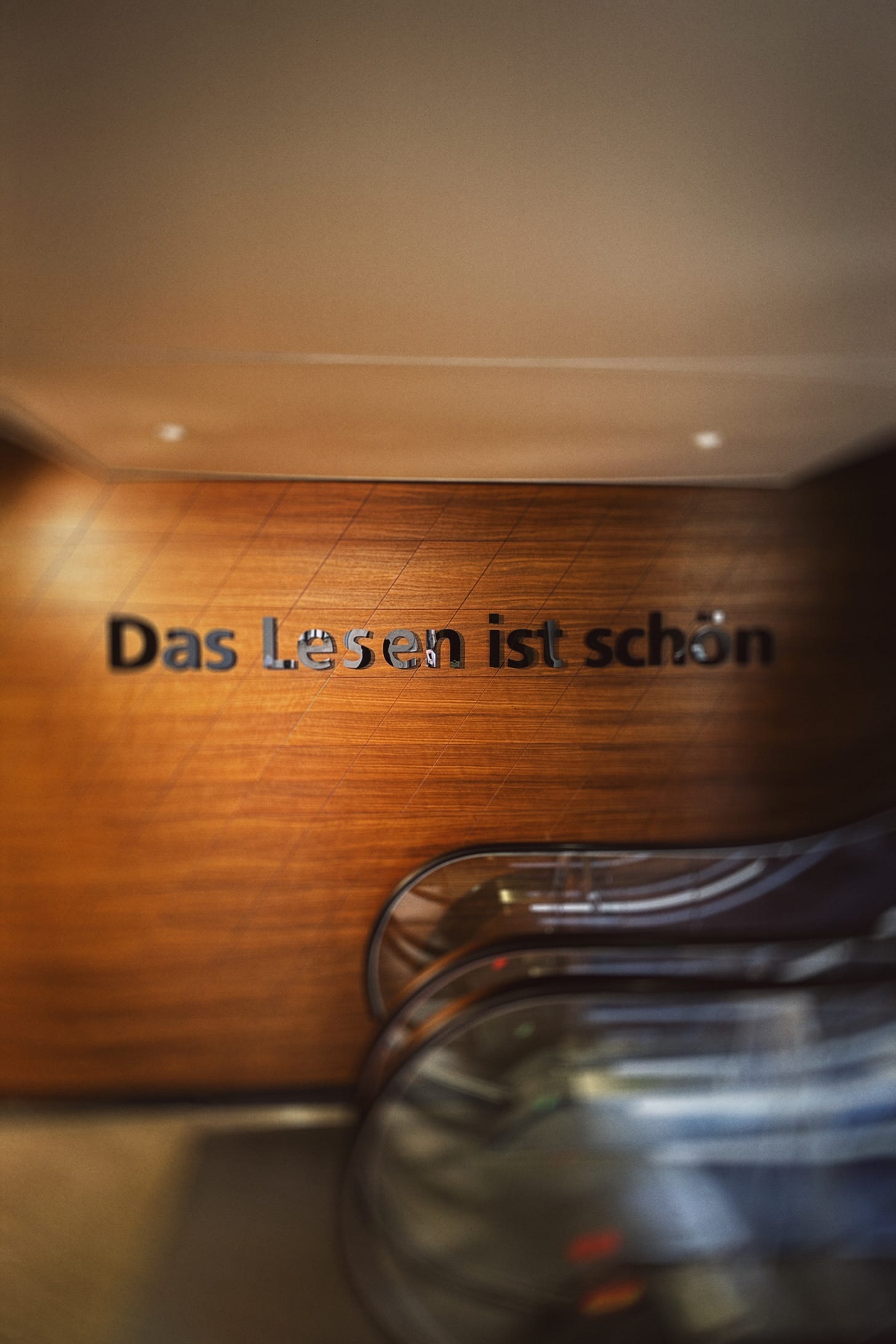
Dear Reader
Eva Maydell MEP, one of the authors of the EU’s controversial AI legislation, assured an audience in Munich that they were mindful of “the panda in the room”.
Antonym’s corporate sibling BN Edition newsletter also had a China theme this week. The allusion this time was by German car executives who said that their industry was falling behind Chinese auto-manufacturers. They also used the German word Zeitenwende to describe this — which translates as a moment when the world turns in a new direction. Sounds like a word that will come in useful for many of us.
China may have economic problems at the moment, but its industries are ready to take the lead, if not taking it already.
For some this is a business challenge, for politicians it is geopolitical. I’d gone to the DLD AI Summit to hear from leaders and innovators in the thick of the Gen AI revolution, and wasn’t as prepared as I should be for the fact that AI is a geopolitical issue. Talk in other sessions was of “AI sovereignty”, which is the business model of the great hope for the EU of Aleph Alpha.
AI, what is it good for?
Markus Löffler of Palantir Technologies – introduced by Techonomy’s David Kirkpatrick as “the biggest, scariest company nobody knows anything about” – said this wasn’t a new insight, going so far as to say that European democracy itself may be intact because of AI being used to spot terrorist cells and meaning Ukraine could resist becoming part of the Russian Federation. Every day there are artillery targeting decisions that are AI-assisted, with “human-in-the-loop”, said Löffler.
Löffler spoke directly and economically about what AI can do to help the world (with a unapologetic emphasis on the interests of the West):
I believe that the combination of generative AI and human intelligence with ontological models and digital twins of the enterprise can make core processes and the company as a whole much more efficient. By doing so, we can decouple growth from resource consumption, which can lead to more sustainable growth.
What does this mean for everyone else?
If you want to dig deeper on that idea – and I certainly do – the ontology is described on Palantir’s website and in a typically to-the-point essay by Löffler.
Watch the whole session here – it includes much more from investors in ESG technologies that may help in the response to the climate emergency.
Speaking of which…
The Giant Leap Scenario
August in England at times felt like October. And now September feels like August. In Madrid.
A great zig-zagging pattern in the Gulf Stream meant that this summer you were either in unseasonably rainy and grim region or the oh-crap-my-country-is-on-fire-zone. We’ve had a spell in both now.
The first session of the DLD AI Summit was appropriately a warning-filled analysis from Sandrine Dixson–Decleve from the Club of Rome. We’re well past the stage of being able to change things incrementally, she said. We have two scenarios: (1) “too little too late” and (2) a “giant leap” into a new type of economy.
Watch her whole Presentation I Implore you.
AI use case one: Everything
As artificial intelligence becomes more integrated into our lives, effectively utilising it often boils down to simply remembering its presence. While powerful AI tools can enhance our capabilities in various ways, the challenge lies in integrating them into our everyday habits and workflows.
I have been experimenting with the use of Perplexity Pro alongside in my daily note-taking routine. It lets me effortlessly generate summaries, capture key insights, and expand my thinking in real-time. Developing the reflex to engage with AI in the moment may seem oddly difficult, but it becomes easier with practice.
Conferences and events present a use case where AI could significantly improve how we operate.
At the DLD conference, the massive amount of insights from speakers and discussions was overwhelming at times. Instead of solely relying on my own notes and memory, having an AI assistant to synthesise concepts, provide suggestions, and capture crucial details would have allowed me to extract even greater value from the experience. In fact, I tried to do that with what I had to hand.
I used Otter.ai app to record the sessions, which lets you add photos direct into the transcript. Given that I was recording from my phone the notes I got from this were very good indeed. I also used Notion’s AI to make a database that automatically created biographies of speakers, backgrounds on their companies and used Perplexity Pro to grab any recent articles by or about them. It was a basic approach, but very useful and with a little planning and automation I think could add a lot of value to attending conferences like this.
Bookshops and Brezls and Augustiner helles…
These are a few of my favourite Bavarian things…
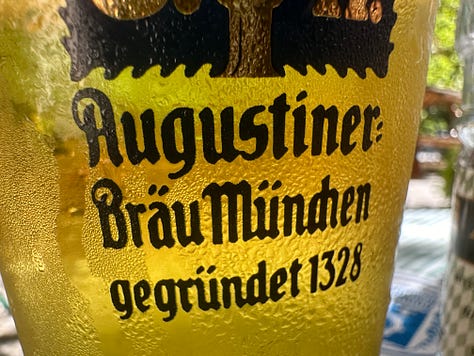
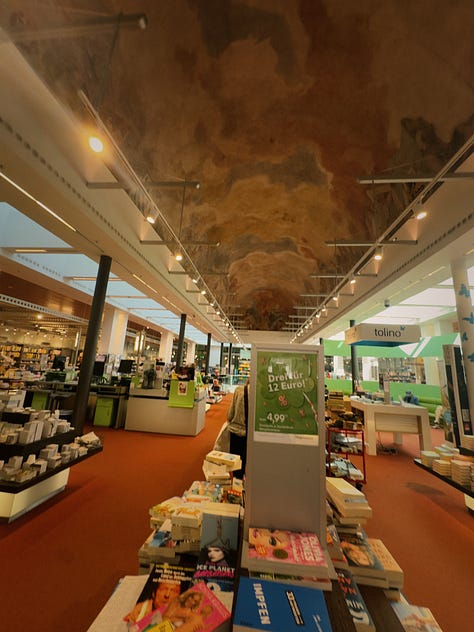
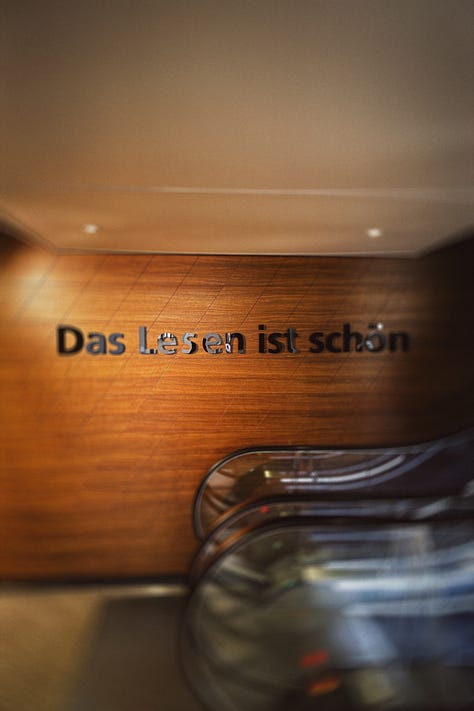
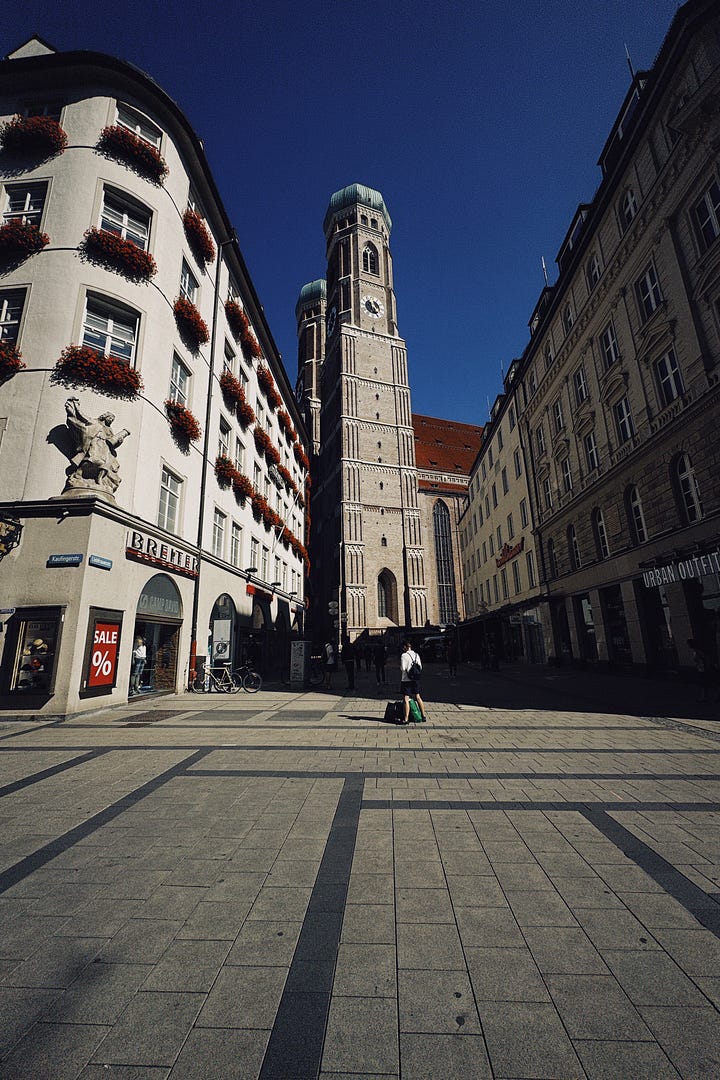

Also, German stationery
During my visit to the captivating Magazin shop in Munich, I discovered a meticulously curated collection of pens, paper, and other related items. I fell for this Nuuna notebook with sleek black-edged pages, a cover crafted from reclaimed leather scraps, and a convenient phone-and-pen holder. If ninjas or special forces required sophisticated notebooks for their missions, this would undoubtedly be their top choice.
This week’s recommendations…
My 5 top audio book recommendations
I wrote this for someone this week and thought I’d best share it here too - for the record.
The Secret History, by Donna Tartt (she reads it and that makes it sing, even if you've read it before).
A Delicate Truth, by John Le Carré (also because he reads his own work and the tone is perfect). NB: The Michael Jayston narrations of his other books are excellent.
A Brief History of Seven Killings, by Marlon James (different voices, some in Jamaican different dialect that really helps to hear – I listened to this alongside reading this amazing book).
Any and all David Sedaris books – they only make sense to me in his voice. Me Talk Pretty One Day is my favourite.
Working, by Robert A Caro — legendary biographer of LBJ and Robert Moses. He narrates it and his voice is an old New York growl that is a pleasure to listen to but also his stories about his work are jaw-dropping.
How To Blow Up A Pipeline
On Netflix now. Great heist movie set against the massive global emergency mentioned above.
That’s all for this week, folks. There will be a lot more about AI and DLD Munich in BN Edition later this week.
Thank you for reading,
Antony





